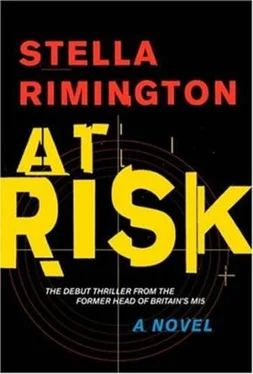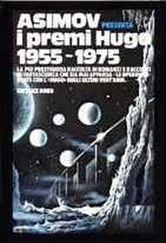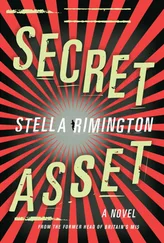They passed several people on the riverbank. There were walkers hunched into jackets and coats, there was a pair of elderly fishermen with thermos flasks, keeping a chilly vigil beneath their umbrellas, and there was a blowsy woman in a turquoise windcheater chivvying an elderly Labrador along the towpath. None of them paid Faraj or Jean any attention, preferring to remain enclosed in their private worlds.
Finally, at about quarter to eleven, the edge of the village came into view. The first dozen or so houses passed by the towpath were red-roofed boxes with pseudo-Georgian detailing, part of a late-twentieth-century speculative development. Beyond these, the river narrowed and passed between, on the north side, a stand of mature yews marking the boundary of the churchyard, and on the south side a coppice of rough evergreen woodland bisected by a public footpath.
Jean and Faraj were on the south bank of the Lesser Ouse, and a flight of shallow stone steps led them into this patch of woodland. When Jean thought of it, it was as it had been that summer ten years ago-a place of slanting green light and curling hash smoke. In December, however, there was little magic about it. The path was boggy and littered with bottles and fast-food wrappers, and the trees had a dank, sodden look about them.
But they provided cover, which was all that was necessary at that moment. Beyond the wet trees stood the village cricket ground. By following the path through the woodland it was possible to approach the back of the cricket pavilion, a crumbling 1930s structure resembling a miniature mock-Tudor villa.
There was a rear door through which the pavilion could be entered, secured by a simple lock. It quickly yielded to Jean’s Banque Nationale de Paris credit card, and scrambling into the dimness with the rucksacks, they pulled the door closed behind them. Exhausted by the release of tension, they slumped down on to a wooden bench that ran the length of the back room. Having weighed up the risks, they had agreed that as long as they kept completely silent and showed no lights, they were probably safe in there. If there was a danger, it was that other people might try to break into the place. Kids, perhaps, looking for somewhere to do drugs or have sex. Beyond that, neither of them could think of a reason why anyone would want to go into a cricket pavilion in midwinter.
Jean looked around her. They were in some sort of changing area, lit by two small, high, cobwebbed windows. A line of hooks ran along the wall above the wooden bench, a couple of them still holding limp cricket shirts, and a heavy stoneware sink stood in one corner. Beside the sink a door led into a toilet stall. There was a faint residual smell of damp and linseed oil.
Cautiously, she opened the door to the forward part of the pavilion. This was an open area, wooden-floored, fronted by a locked door and two sets of green-painted shutters covering windows through which players could watch the game. As in the back room two high side windows admitted a thin light to the interior, showing stacked deckchairs and wicker laundry baskets holding pads, bats and batting gloves. On the long wall hung a pair of umpires’ coats and several dusty team photos.
“Play up, play up and play the game!” murmured Faraj.
“I’m sorry?”
“Just a poem I learned in school.”
Jean stared at him blankly for a moment. “We need to make a look-out position. Maybe cut a hole in these shutters or something.”
He shook his head. “Too risky. And we haven’t got the tools to do it with.” Climbing on to the pile of deckchairs, he peered through the small side window. “Try this.”
He climbed down and she took his place. Through the small opening, barely a foot square, she could see right across the northwest quadrant of the cricket ground. Beyond the post-and-rail fence at its boundary, several hundred yards away, the perimeter road was visible, and on its far side the rain-darkened sweep of the Terrace and the George and Dragon.
Disappearing into the back room, Faraj returned with the binoculars and passed them up to her. Outside Number One, the Terrace, stood a dark red Jaguar. On the ground floor, through the tall windows, she could see a tall, unmoving figure. Was that him? she wondered. The man who, on the other side of the world, had been selected to die. To die with his family around him, as so many innocent citizens of Iraq, Afghanistan and other states had died. Blown to pieces without warning. Casually-jokingly, even-and by strangers, as if they were no more than a cluster of pixels in a computer game. And then dismissed as “collateral damage.”
She shook her head. These people were about to learn about damage. About to learn the difference between the real and the remote.
The tall figure moved away from the window, and Jean was about to lower the binoculars when a figure in the road caught her eye. A man in a pale raincoat had just exited a black car in order to stretch his arms and legs.
“There’s security there,” she whispered urgently. “A man in a car, and… yes, another inside the car.”
Faraj nodded. “It was to be expected. We’ll have to approach the house from the back.”
“There’s a back alley running between two of the houses. When it’s dark I’ll find my way in there. The garden’s probably alarmed or spotlit, but I should be able to lower the device over the wall. It’ll go off near to the side door of the house.”
“They’re well built, these old houses, no? Solid?”
“Pretty well built.”
“We might not kill them all.”
“It’s the only option we’ve got, Faraj.”
“Let me think about it. And get changed, you have to buy us some food.”
She nodded, and went into the back room. There, making sure to keep her head below the level of the windows, she washed her hands, using a cracked rind of Lifebuoy soap that she found in a saucer by the sink, and dried them on one of the cricket shirts. Then, locating her washbag, she took out her small stock of make-up, and went through the half-forgotten ritual. A faint skim of foundation, a touch of shadow on the eyelids, and a pale dab of lipstick. She wanted to look like someone who had woken up in a comfortable middle-class home and had muesli and fresh orange juice for breakfast, not like a terrorist who had slept filthy and hungry beneath a fenland bridge. From her rucksack she took one of the knotted bin-liners of clothes. There was a soft lilac cashmere sweater, grey combat pants and a fitted denim jacket with a quilted lining, all bought in a mid-range Parisian department store. As she had hoped, the hiking boots looked more or less OK with this outfit, in a studenty sort of way. And the ensemble teamed up well with its final component-a small grey mono-strap backpack.
When she was ready, she looked at herself in the changing room mirror. The transformation was startling. Her hair, instead of falling flat and lank to her shoulders, now neatly framed her face. He had made a surprisingly sensitive job of it. And the make-up, of course, made all the difference. There was nothing remotely threatening about the bland and conventionally feminised creature that looked back at her. Hesitantly, she went through and showed herself to Faraj. He nodded, and said nothing, but some unreadable emotion touched his gaze.
“I should go shopping,” she said, patting her trouser pockets to check that she had the velcro wallet.
“I’ll wire up the weapon,” he answered. “Don’t be seen on the way out.”
“When I knock six times, let me in. Any other number of knocks, it’s not me, or they’ve taken me.”
“I understand. Go.”
A quick look through one of the high changing-room windows estab lished that the coast was clear, and Jean let herself out. She walked back into the wood and then took the northeasterly path, coming out at the side of the road bordering the cricket ground. The shops-a panel-beating and exhaust repairs yard, a newsagent’s, and a village stores incorporating a sub-post office, were at the near end of The Terrace, and as she crossed the road she saw a fair-haired young man saunter down the steps of Number One. Like her, he seemed to be heading for the shops. This must be the man’s son, she thought with a crawl of foreboding.
Читать дальше












